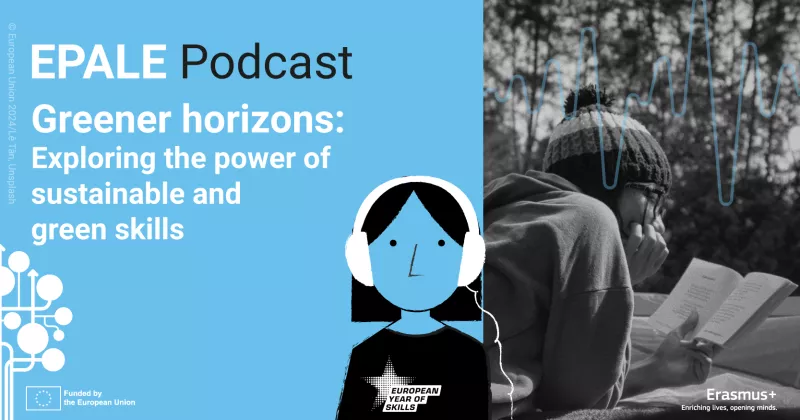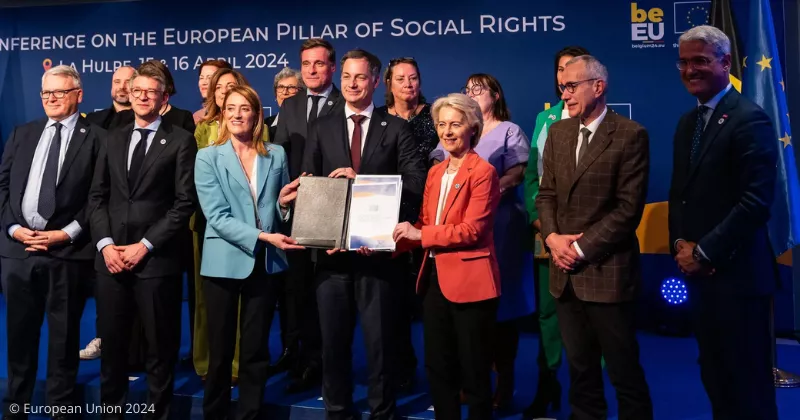OECD encourages Finland to develop an overarching vision for the continuous learning system

The Organisation for Economic Co-operation and Development (OECD) recommends that Finland diversify its adult education provision, make it more relevant for working life, and use economic incentives to encourage reskilling and upskilling. Special attention should be paid to outreach and guidance services to adults with lower basic skills. The Ministry of Education and Culture and the Ministry of Economic Affairs and Employment use the OECD recommendations for purposes such as the continuous learning reform.
In its report Continuous Learning in Working Life in Finland published on 19 February 2020, the OECD makes recommendations to Finland on measures that will facilitate adaptation to the changing world of work and ensure that opportunities for reskilling and upskilling are available to everyone as needed.
According to the OECD, Finland should:
- diversify its education and training provision;
- make the education and training provided more labour market relevant;
- incentivise individuals to engage in labour market relevant training;
- provide comprehensive information and guidance services;
- develop tailored education programmes; and
- reach out to adults with low basic skills.
According to the OECD’s assessment, the strengths of the Finnish adult education system include its versatility and active participation. By international comparison, Finland boasts a high skills level. Education is free or affordable, and it is available flexibly.
However, according to the OECD, the system does not offer optimal opportunities for upskilling and reskilling. Nor does the system provide education and training related incentives or guidance to those who need it most. Skills are unevenly distributed, and it is difficult to reach those most in need of training and education. The skills gap widens in working life: Finland has one of the largest gaps in learning participation between adults with low basic skills and those with higher skill levels amongst OECD economies.
There are growing concerns about the supply of skilled labour, given demographic change and stagnating educational attainment levels. According to the OECD assessment, offering more targeted support for adults with low basic skills is imperative. The OECD encourages Finland to develop an overarching vision for the continuous learning system and to take into account the linkages between the adult learning system and other policy areas such as initial education or the social security system.
“Everyone should have the right and a genuine opportunity for lifelong upskilling; this is the best way to ensure employability, and it is imperative for creating a high employment rate. It is also important that continuous learning is not a privilege reserved only for those with higher education. Instead, it must be an option for everyone, regardless of educational background. To this end, we have launched a reform of continuous learning with the objective of creating new models for on-the-job learning and for reaching out to groups that are currently underrepresented in adult education,” Minister of Education Li Andersson explains.
The reform is being prepared in cooperation between all political parties and social partners, who will complete their policy outline by the end of 2020. This outline will serve as a basis for the reform which will extend beyond the government term. A sub-group working under the Ministerial Working Group on Promoting Employment will contribute to the implementation of this reform by addressing issues such as the labour market mismatch.
“Education and training as well as upskilling are and will be the key tools for raising the employment rate in Finland and for solving problems such as the labour market mismatch,” says Minister of Employment Tuula Haatainen.
“We already have a shortage of highly skilled specialists, and this demand will only grow in the future. It is clear that we need more university graduates and more learning programmes targeting those with higher education. However, this alone is not enough. Higher education institutions should offer suitable opportunities for developing skills for all, including those who do not have a university degree,” says Minister of Science and Culture Hanna Kosonen.
Better opportunities for upskilling and reskilling needed
The OECD identifies particular development needs in the provision of short-term education and training, the alignment of education and training with labour market needs, and financial incentives.
To diversify the education and training provision, the OECD recommends that more privately organised non-degree studies should be made available that are better suited to adults. This would reduce the pressure to apply for training programmes that are primarily intended for young people.
Foresight information should be used more systematically to make education and training more labour market relevant. In addition, the capacity of employers to develop training programmes should be assessed. Providers could be incentivised to offer education and training in line with skill demand by strengthening the link between funding and the content of training courses. Improving and coordinating information and service channels such as the digital Job market and Stydyinfo.fi platforms would make information on education and training and on working life more easily accessible.
To encourage people to make more relevant study choices, financial support to students should be either reallocated or reinvented. Both degree and non-degree students should be treated equally.
The OECD proposes that Finland explore the possibility of prioritising more labour market relevant education and training when allocating adult education subsidies and granting scholarships for qualified employees. Furthermore, student financial aid granted to adults could be limited to encouraging basic or higher level studies in sectors suffering from labour shortage.
Special attention and tailored services to bridge the skills gap
The OECD proposes that Finland consider launching a national programme aimed at improving study motivation and basic skills. This programme would target those most in need of new skills.
Outreach activities could be used as a means of offering services and training opportunities to low-skilled individuals either at work or in their local communities. Multi-sectoral one-stop service points should be set up to facilitate access to education and training. TE Offices play a key role here; therefore they should be given sufficient resources to provide such service.
Additional financing would be required to implement some of the recommendations. The OECD suggests allocating more of the existing resources to adults with poor basic skills. It also suggests considering new forms of financing, such as training levies or fees.
Continuous Learning in Working Life in Finland -report
The news was first published in Ministry of Economic Affairs and Employment Ministry of Education and Culture press release 19.2.2020






I am particularly drawn to